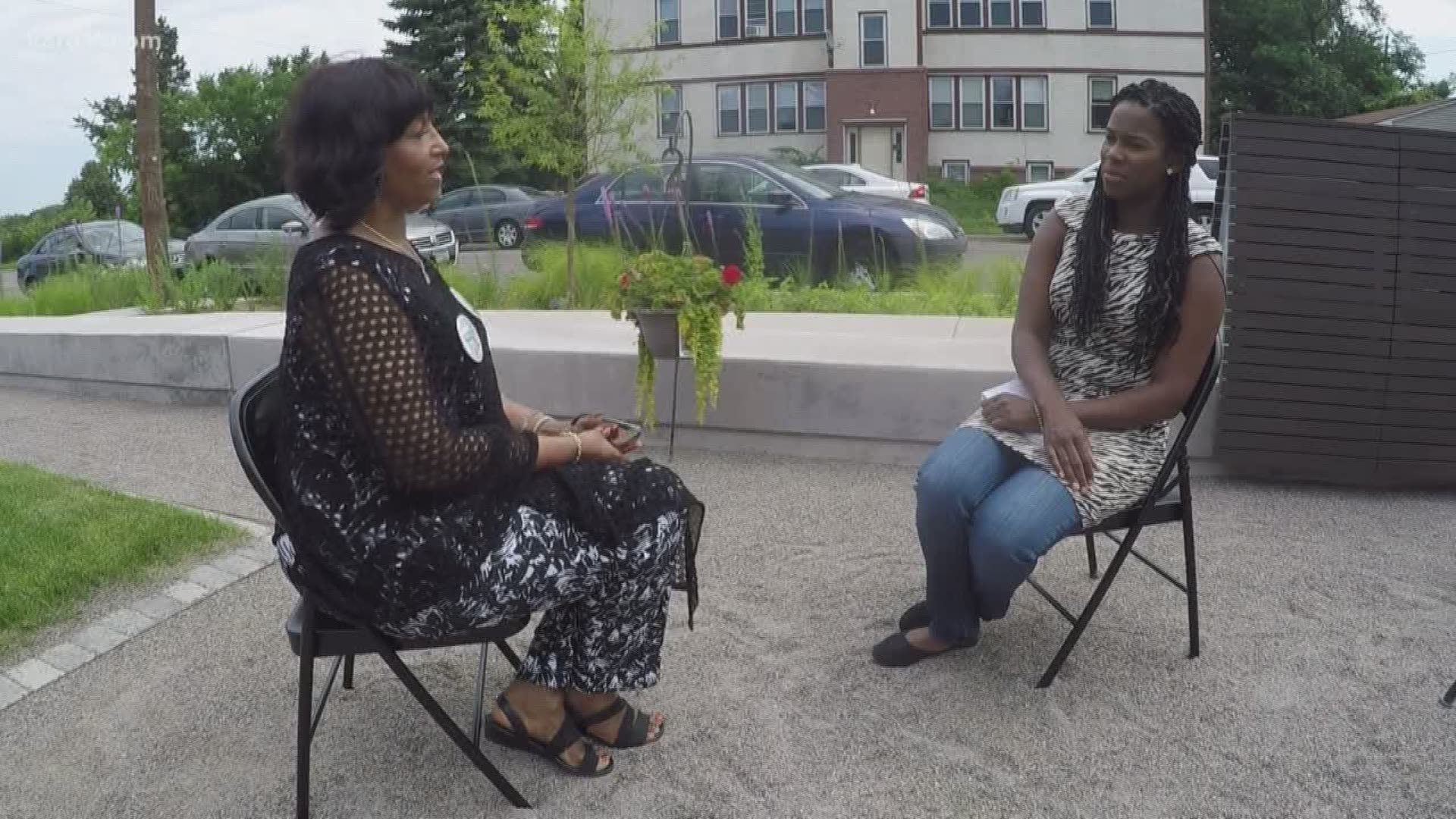A picture of a deceased teen, beaten beyond recognition, changed America. That little boy, 14, was Emmett Till.
He was kidnapped, beaten, shot and tossed in the Tallahatchie River in 1955.
Today, the child behind the push of the civil rights movement would have turned 78.
Deborah Watts was too young to remember the day her cousin, Emmett, died. Her great grandfather and Emmett's great grandfather were brothers. But growing up and as an adult she heard stories from Emmett's mom, Mamie Till-Mobley, who insisted on an open casket funeral so the world could see and know what happened to her son.
“It was a lynching. She wanted to make sure the public understood it so they could see the sins of our hatred and what it really looked like. She wanted that contrast between what he was and what hate did to him,” Deborah Watts said. “I promised her that I would continue her work and build upon the legacy she was trying to make happen. She never saw justice for Emmett.”
So, Watts co-founded the Emmett Till Legacy Foundation. On Thursday, on a community radio show Watts celebrated what would have been Till’s 78th birthday.
In July of 2018, the federal government reopened its investigation into the teen’s killing. Then, the Justice Department told Congress in a report it was once again investigating Till's murder in Money, Mississippi, in 1955 after receiving "new information."
NBC News reported the federal document, sent annually to lawmakers was under a law bearing Till’s name, didn’t say what the new information was. That report came out following the publication of "The Blood of Emmett Till," a book that says the woman who accused the teen admitted to lying about events preceding the murder of the 14-year-old from Chicago.
The author, Timothy B. Tyson, quotes a white woman, Carolyn Donham, as acknowledging during a 2008 interview that she wasn't truthful when she testified that Till grabbed her, whistled and made sexual advances at a store in 1955.
The two white men — Donham's then-husband Roy Bryant and his half-brother J.W. Milam — were charged with murder but acquitted later confessed to the crime in a magazine interview. Both are now dead.
The woman, who dropped her married name of Bryant, is now in her 80’s and still living. The Watts have tried contacting her on numerous occasions.
“We are still looking for the State of Mississippi to bring the appropriate charges. We still waiting for the Department of Justice and the FBI to finish their investigation that was reopened in 2008 based on new information that was revealed in a book,” Deborah Watts said. “We want the truth and an apology from Carolyn Bryant.”
Civil rights icon, Rosa Parks, refused to give up her bus seat to a white passenger 100 days after Till's murder. As Parks remained seated, she said she thought about Emmett Till and just couldn’t do it. Her arrest sparked a citywide boycott against Montgomery buses – which brought them to the brink of bankruptcy.
On Thursday, Deborah Watts also talked about her family's unfinished business. Deborah Watts said her foundation is working on an initiative called: Victims of Racially Motivated Murder. She said it helps empower those families seeking justice.
“The justice for Emmett takes on a lot of forms. We are looking at how we can help other families achieve justice and bring attention to the racism and hatred and violence I think is still in our country. The families of Philando Castile. Trayvon Martin, Eric Garner and others. Maybe lynching is not in the same form that it was when Emmett was murdered but there are some strong connections behind the context. We want to make sure those families receive justice as well,” said Deborah Watts.
As a child, Teri Watts remembers her family reunions in Chicago. That is how she first learned about her cousin known as the sacrificial lamb of the civil rights movement.
“His mother would wear buttons commemorating Emmett’s death by showing pictures of him. My cousins and I were afraid to look at it. I didn’t know why she was showing him in that manner. I was able to understand appreciate Mamie’s dedication later when I was in high school,” said Teri Watts.
Photography, sometimes painful, helps tell the story of history.
Watts wants to make sure some history never repeats.
“I want to make sure the world understands who Emmett was and the sacrifice (his mother) made to show his body in the form that it was after he was brutally murdered. Hatred doesn't belong, violence doesn't belong and certainly racism doesn't belong,” said Deborah Watts.

